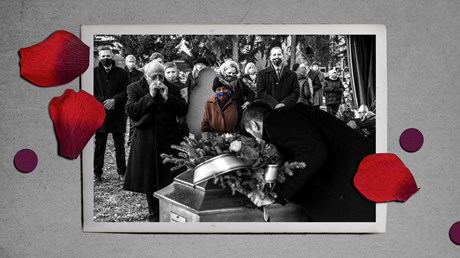Don't distance from mourning. You need the power of worship to usher your loved ones to glory.

When my husband, Rob, asked me to marry him, I seriously entertained the idea of elopement. Young, penniless, and impatient, I reasoned, “Who needs a big church service to express our commitment to each other?” A short legal ceremony and a picture on the courthouse steps would allow us to eschew the pomp and circumstance (and cost) of a wedding and jump right into the thing we wanted most—a life spent together.
As our engagement progressed, Rob convinced me that we should opt for a traditional Christian ceremony. “Later, you’ll wish you did it,” he told me. So we rented a church, invited our friends and family, and hired the organist. When it was all over, I had to agree that Rob was right. We needed to start our life together with worship as the context for our marriage.
Waiting to marry, waiting to bury
For the past year, state restrictions have prohibited large gatherings in most states across the US, a burden felt particularly by those who hoped to wed. But starry-eyed lovers aren’t the only ones who’ve had to give up ceremonies; grieving people have too. Restrictions on large gatherings have required families to re-envision their early days of bereavement as church services switched online and funerals were delayed. For many, the waiting further complicates their grief.
With all of the challenges of grief in a pandemic, many bereaved families have chosen to delay or omit funeral worship. Behavioral health and hospice organizations have worked hard to help people find alternative, meaningful ways to say goodbye, but for Christians, none can replace funeral worship amid the gathered congregation. Death-defying worship defines the Christian life. As it should mark the beginning ...
from Christianity Today Magazine
via




.gif)

.gif)
.gif)
